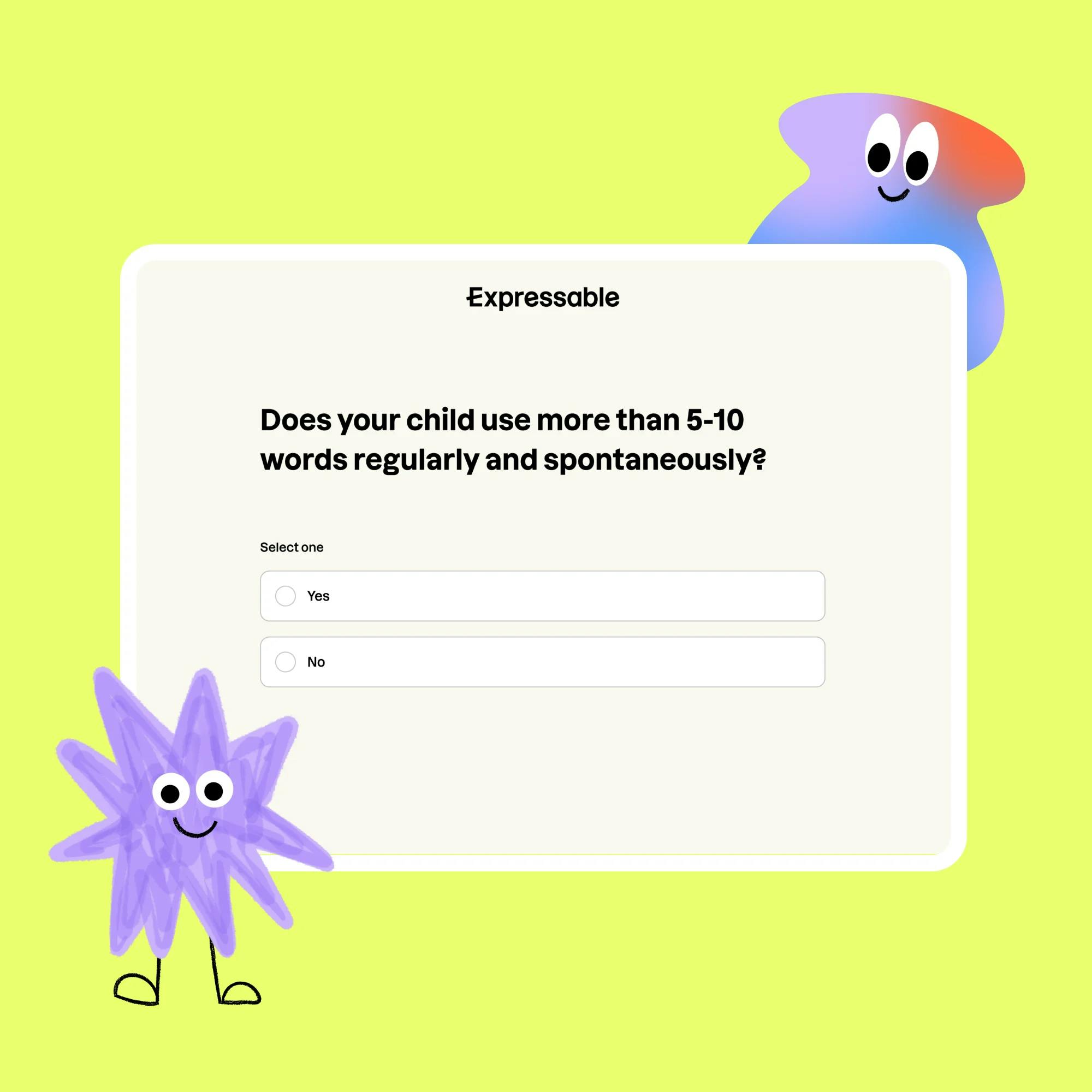You may have heard that boys start talking later than girls do. Is this true? And if it is, does that mean parents shouldn’t be concerned if their toddler is a “late talker” and doesn’t meet developmental milestones? Let’s explore the science behind this statement and what to look for in your child’s language development.
Myth or fact: Boys talk later than girls
Research has shown that girls say their first words and first sentences at a younger age than boys. They also have larger vocabularies in their early communications than boys do. So it is true that boys tend to start talking later than girls.
Studies have also shown that boys tend to use gestures to communicate (such as pointing) later than girls do.
The key here is that the time between when boys and girls do these things is typically a matter of a few months. That time difference is part of the normal range in which children hit certain language milestones. So, for example, the typical age at which children begin talking is 12 months, but you may hear their first words a bit before that, or a bit after. Boys simply tend to start talking later within that range than girls do.
Knowledge is power
Take 5 minutes to check your child’s speech milestones with our free online screener.
 Start the screener
Start the screenerWhy do girls start talking earlier?
There are several reasons girls may hit their language milestones on the earlier side.
Biological factors: The gene FOXP2 is important for speech and language development. Research has called it the "language gene." Females have higher levels of FOXP2. More studies are needed, but researchers agree that this gene has an impact on speech and language development.
Hormones: Male and female sex hormones have been researched to understand their role in the development of speech and language. Estrogen, the female hormone, can enhance social and verbal skills and is connected to certain aspects of the brain that are part of language development. Studies have shown that testosterone has the opposite impact, and it affects the same part of the brain for language development.
Nature versus nurture: There is a biological difference between males and females. But we should also consider the influence of “nurture”–how girls and boys may be raised and treated differently.
We should also consider how girls and boys may be treated differently.
Many people change their behavior and communication style depending on whether they’re speaking with a boy or a girl. Also, for decades boys were encouraged to do more physical activities like sports and playing outside. Girls were encouraged to do more social and “domestic” activities, such as having tea parties or playing with dolls. These activities can affect speech and language development.


Boys are more likely to have language delays than girls
Language development refers to two things: (1) a child’s ability to learn and understand what’s said to them, called receptive language, and (2) a child’s ability to communicate verbally or nonverbally, called expressive language.
When children don’t develop language at the expected rate, and don’t meet the milestones for their age, this is called a language delay. Males have been shown to be three times more likely to have late language emergence than females. This is a language delay with no other diagnosed disabilities or developmental delays. Toddlers with this type of language delay may also be referred to as “late talkers” or “late language learners.”
In addition, autism, which tends to affect a person’s language abilities, is more prevalent in males. Autism is four times more common in boys than in girls. It should be noted, however, that females are often underdiagnosed or diagnosed later in life because of differences in how autism characteristics present.


How do you know if your child needs speech therapy?
If your child hasn’t hit his language milestones for his age, don’t assume it’s because he’s a boy and take a “wait and see” approach.
Whether they’re male or female, by age 18 to 24 months, your child should have at least 5 to 10 words that they use regularly and spontaneously.
If your child is 15 months or older and hasn’t yet said their first word, this could be a sign of a speech or language delay.
If your child is age 15 months or older and hasn’t yet said their first word, or seems to be struggling to communicate, this could be a sign of a speech or language delay. It’s a good idea to talk with your child’s doctor and schedule an evaluation with a speech-language pathologist, also known as a speech therapist.
Consider taking our simple online screener to find out if your child would benefit from an evaluation. You can discuss your results with one of our specialists for free.


Research has shown that the earlier speech therapy begins, the better the outcomes. A speech therapist is best equipped to evaluate your child, discuss any questions or concerns you have, and provide professional guidance on whether or not your child should receive speech therapy. Helping your child learn to communicate clearly and confidently is important for their social, academic, and emotional development. So if you have concerns, trust your gut. Contact a speech therapist for an evaluation.
How Expressable Can Help
Concerned your child isn't reaching age-expected milestones? Looking for communication support from a professional? Expressable is a national online speech therapy practice serving children and adults. We treat all major areas of communication and feeding, offer flexible hours including evenings and weekends, and accept most major health insurance plans. We’re proud to have earned more than 3,000 5-star reviews from our clients (4.9/5 average).
Our therapy model is centered on parent and caregiver involvement. Research proves that empowering caregivers to participate in their loved one’s therapy leads to better outcomes. That’s why we combine live, 1-on-1 speech therapy with personalized education and home practice activities for faster progress.
Communication is more than words. It’s how we share how we feel and show who we are. We’re here to help you or your child do just that.
 Abby Barnes, M.S., CCC-SLP
Abby Barnes, M.S., CCC-SLP















